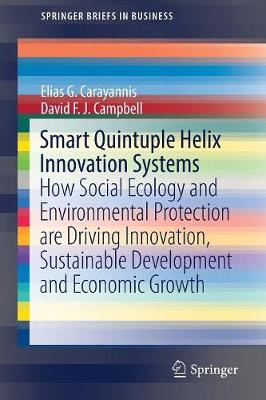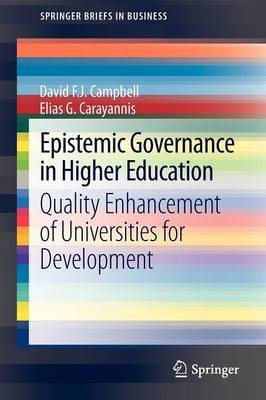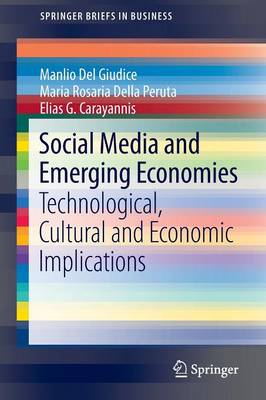SpringerBriefs in Business
4 total works
Smart Quintuple Helix Innovation Systems
by Elias G. Carayannis and David F. J. Campbell
The Quintuple Helix innovation model focuses on the interactions among five key elements of society: academia, industry, government, culture, and the environment--with particular respect to harnessing knowledge to promote social, political, and economic development. The Quintuple Helix is a powerful theoretical and practical lens for analyzing and understanding such critical and complex ecological and socioeconomic issues as global warming and climate change and their implications for sustainability. The authors provide policy approaches and strategies to help create a balance among the often competing forces of environmental protection, innovation, entrepreneurship, and social and economic growth that will successfully benefit society and protect democratic values.
Mode 3 Knowledge Production in Quadruple Helix Innovation Systems
by Elias G. Carayannis and David F. J. Campbell
Developed and developing economies alike face increased resource scarcity and competitive rivalry. In this context, science and technology appear as an essential source of competitive and sustainable advantage at national and regional levels. However, the key determinant of their efficacy is the quality and quantity of entrepreneurship-enabled innovation that unlocks and captures the benefits of the science enterprise in the form of private, public or hybrid goods. Linking basic and applied research with the market, via technology transfer and commercialization mechanisms, including government-university-industry partnerships and capital investments, constitutes the essential trigger mechanism and driving force of sustainable competitive advantage and prosperity. In this volume, the authors define the terms and principles of knowledge creation, diffusion, and use, and establish a theoretical framework for their study. In particular, they focus on the "Quadruple Helix" model, through which government, academia, industry, and civil society are seen as key actors promoting a democratic approach to innovation through which strategy development and decision making are exposed to feedback from key stakeholders, resulting in socially accountable policies and practices.
Epistemic Governance in Higher Education
by David F. J. Campbell and Elias G. Carayannis



